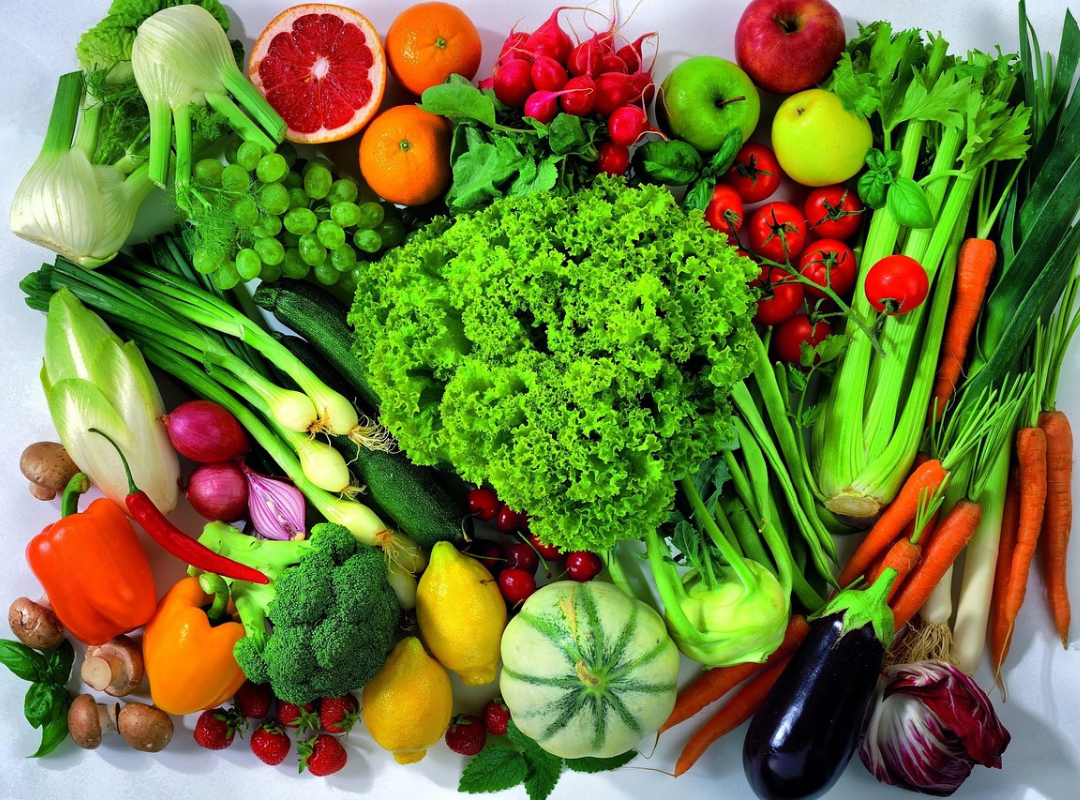What better way to start the new season than celebrating National Nutrition Month?
This annual campaign is created and sponsored by the Academy of Nutrition and Dietetics in the United States, with the aim to promote healthier eating and physical activity.
According to the Centers for Disease Control and Prevention, less than 1 in 10 adults consume the recommended daily intake of fruits and vegetables.
This lack of healthy eating habits in the US can be attributed to multiple socio-economic factors such as inaccessibility, education, costs, and time. Until these issues are tackled, completely eliminating diets that are low in nutritional value is difficult.
However, this does not mean that you shouldn’t begin your journey this spring!
After all, multiple studies have shown that good nutrition lowers the risk of a myriad of diseases, including heart disease, some types of cancer and type II diabetes. Therefore, prioritising your health should absolutely be high on your to-do list.
In this article, you will learn more about developing smarter eating habits and ways you can celebrate this notable month!
What is the theme of this year’s National Nutrition Month?
That’s right! Each year comes with a different theme that highlights an aspect of nutrition. For instance, the month’s theme in 1994 was ‘Nutrition Fuels Fitness.’ Thus, there was a closer focus on the ways a healthy diet can positively impact an individual’s physical activity.
This year’s theme is ‘Fuel for the Future.’
The aim is to promote healthy, yet sustainable foods that fuel our bodies without harming the environment.
Food sustainability has several benefits, including:
- It combats climate change by reducing greenhouse gases
- It reduces deforestation
- It promotes fair compensation for farmers
- It reduces air, water, and soil pollution
- It encourages us to shop locally and support our community
To adopt a sustainable diet means that we must look beyond just the food itself. How foods are produced, distributed and consumed are also part of the problem.
For example, opting for local ingredients minimises unnecessary overseas and road transportation of goods that play a big role in mass pollution, while also helping the economy through the support of local businesses.
To make it easier for people who are willing to become a healthier and more sustainable version of themselves this year, the Academy of Nutrition and Dietetics has divided the month into 5 weeks.
Each week takes a different approach around sustainable eating, helping participants to achieve their goals through a more structured plan. This means that if you are not sure where to begin, you can simply follow the campaign’s recommended plan:
Week 1: Eat with the Environment in Mind
In the first week, you are encouraged to:
- Opt for plant-based options, including both meals and snacks
- Purchase foods with minimal packaging. As mentioned above, sustainable eating is not simply about the food, but also about the way it is packaged
- Choose season fruits and vegetables
- Support your local farmers by shopping locally
- Start a backyard garden or container to grow food at home
Week 2: See a Registered Dietitian Nutritionist (RD/RDN)
In the second week, you should:
- Request a referral to an RDN, particularly one that specialises in your needs
- Receive nutritional information that is tailored to your health goals
- Read more resources on the benefits of adopting sustainable habits
Week 3: Stay Nourished and Save Money
While this may come as a surprise to some, eating sustainably can actually be a budget-friendly option that keeps your wallet happy. This is possible if you:
- Plan your meals and snacks before going grocery shopping to minimise waste
- Use a grocery list and have a look at the sales and promotions section of your store
- Check the foods you already have at home and use them before going shopping
- Learn more about community resources (SNAP, WIC) and local food banks
Week 4: Eat a Variety of Foods from All Food Groups
This fun week is the perfect time to explore your creative side by:
- Including your favorite cultural foods and traditions
- Trying foods in all forms, including fresh, frozen, canned, and dried
- Avoiding restrictive diets that may lead to binge-eating
- Practising gratitude for your body by giving it the necessary fuel it needs
Week 5: Make Tasty Foods at Home
This is the ideal week to put your skills into practice (or even start to acquire new cooking skills!) You can do this by:
- Exploring creative ways to use leftovers rather than wasting them
- Trying new recipes from across the world
- Learning how to cook and meal prep
- Creating wholesome memories by eating with friends and family
What are some other ways of starting a healthy, yet sustainable diet?
While a recommended plan of action is useful for those who are unsure where to start, sustainable eating does not stop there.
There is an endless number of habits you can adopt that will improve your health without harming the environment.
1. Get inspired!
If you are looking to get more creative in the kitchen, finding different sources of inspiration to keep you going is important.
Social media is full of food bloggers, nutritionists and health enthusiasts that post content regularly. Pinterest, Instagram and YouTube are popular choices for innovative recipes!
For a more traditional approach, asking family and friends for their own recipes and purchasing cookbooks will also do the trick.
All in all, numerous avenues for inspiration will help you step up your cooking game!
2. Drink plenty of water
You have probably come across this tip multiple times throughout your life, and it’s for a good reason!
Staying hydrated has endless benefits for your body and mind, such as maximising your physical performance, boosting skin health and preventing kidney stones.
Drinking an adequate amount of water should be one of your top priorities on a daily basis and whilst it can be a difficult goal to achieve, there’s tools you can use that can help you.
For example, purchasing a water bottle with litre or timer markings is a good investment that will allow you to see how much water you are drinking and even act as a reminder when you are not drinking enough.
3. Reduce your fast-food consumption
Cooking more meals at home is not just a healthier option for your body, but also for your bank account!
There’s nothing wrong with having takeout once in a while. Avoiding restrictive diets is in fact advised, as they often lead to guilt, binge-eating, and an unhealthy relationship with food.
The issue with fast food is when it becomes a frequent, or even daily habit.
Instead, aim to make your own food at home and pre-pack your lunch in the morning to ensure that you do not get tempted by all the options out there!
4. Increase your physical activity
Having a balanced, sustainable diet is super important for our overall health and well-being.
As the Academy of Nutrition and Dietetics recommends, a healthy lifestyle needs to also include some form of physical activity.
There’s a very long list of possible workout avenues you can explore, including weightlifting, dancing, walking, swimming and so on.
According to a study carried out by Harvard University, walking for 20 minutes a day, at least 5 days a week can reduce the number of sick days an individual has by 43%.
Similarly, another study found that women who walked for at least 7 hours per week had a 14% reduced risk of developing breast cancer.
It can safely be concluded that even low intensity forms of exercise such as walking can have a tremendous effect on our quality of life.
5. Educate yourself on nutrition
Making better decisions is easier when we understand the science behind it.
What better way to do this than educating yourself through blogs, nutrition apps, podcasts and dietician content?
Not only will you learn new fun facts that may even surprise you, such as the fact that strawberries contain more Vitamin C than oranges, but you will also understand the benefits behind certain lifestyle decisions you make.
Here at Her Nexx Chapter, we want to see women thrive in all aspects of their lives. Fuelling our bodies with the nutrients it needs should be a daily priority and what better month to start creating these habits than the National Nutrition Month?
As Aristotle once said: “Healthy mind in a healthy body.”
In other words, it is a balanced diet and physical activity that will promote healthy well-being.
Her Nexx Chapter invites you to join our free Community where women from around the world are connecting with each other’s stories, exploring different experiences, and transforming ideas.
The Future of Connection for Women








0 Comments